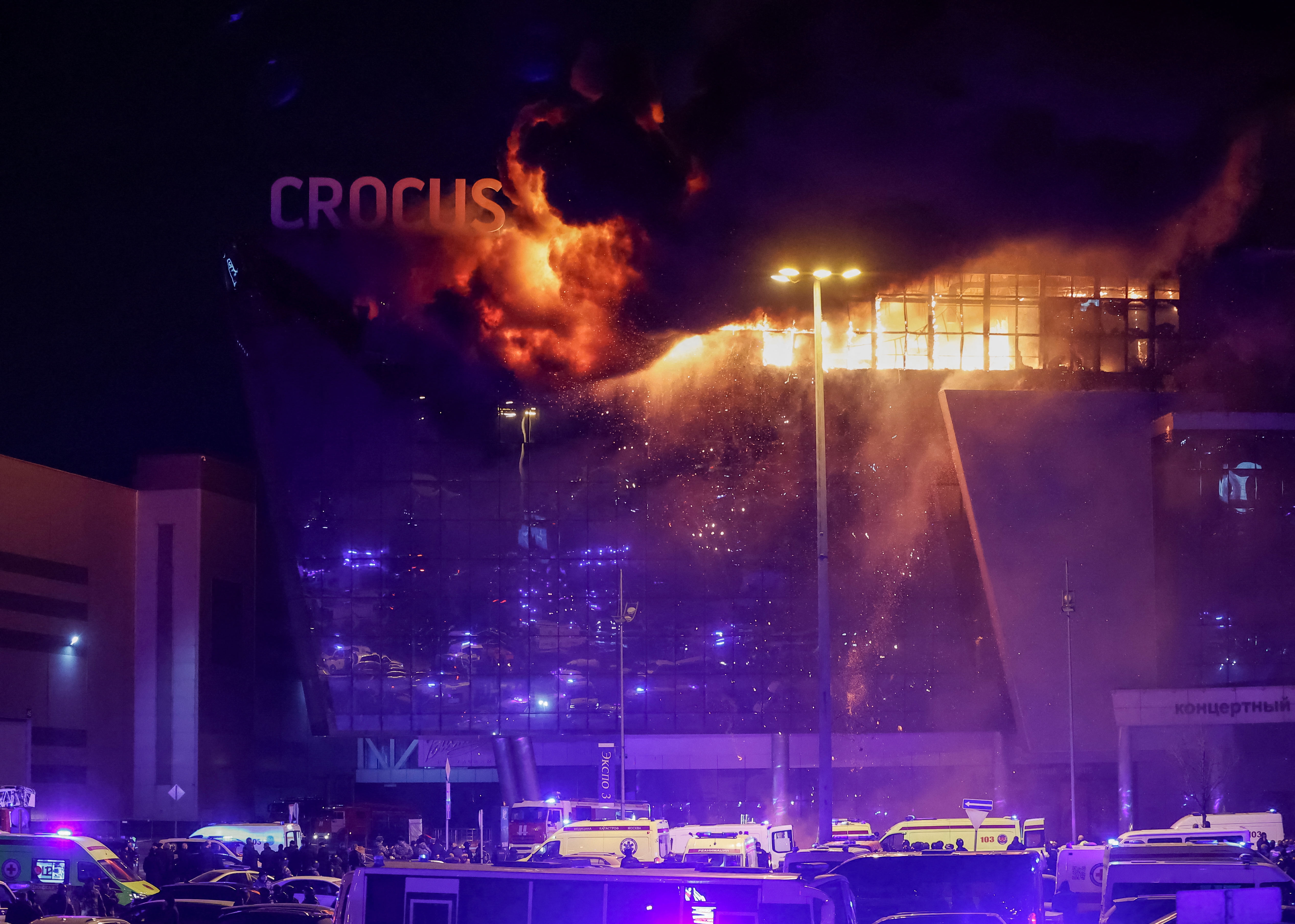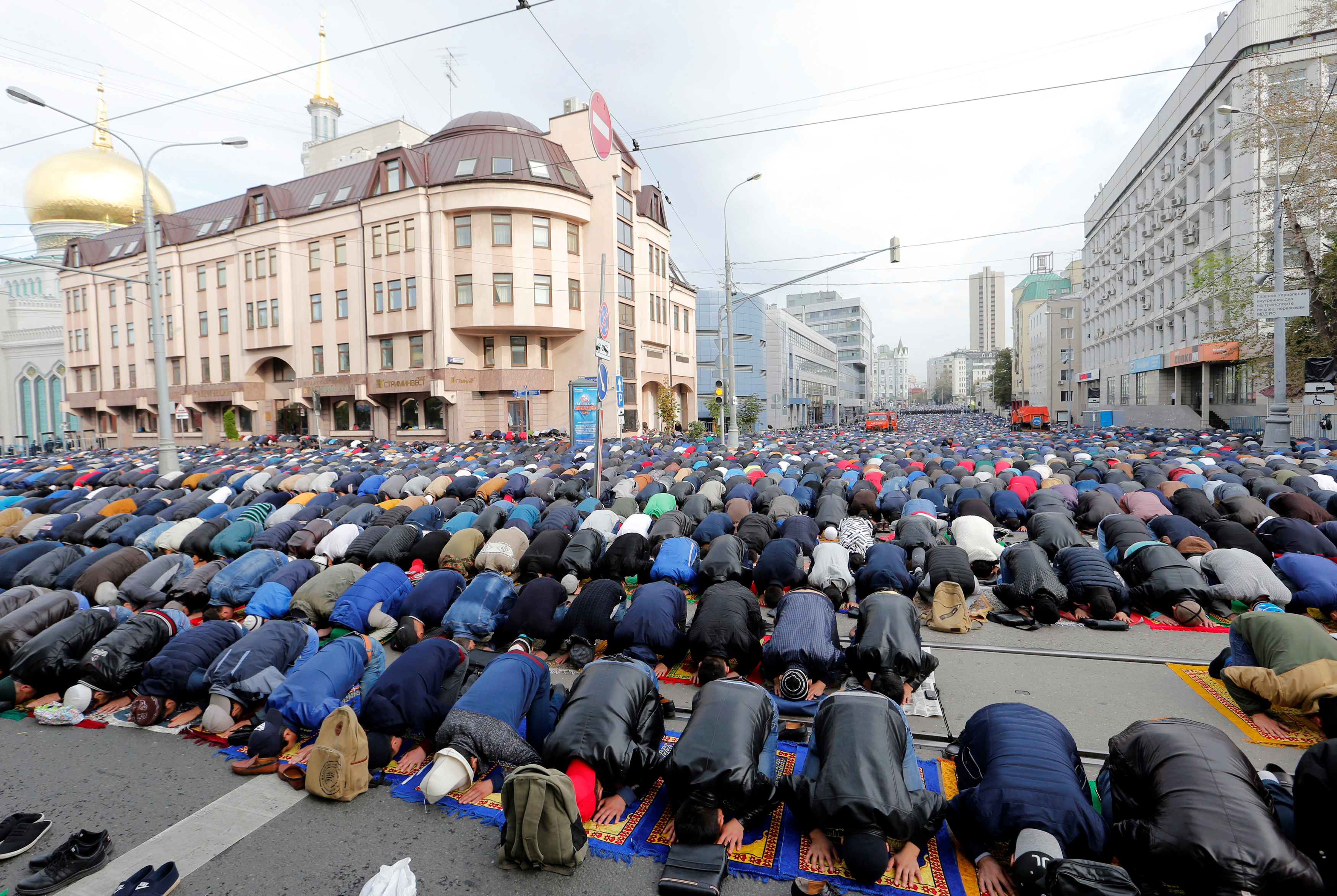2.3
Russia faces Islamist extremism
Share:
20.12.2024
Eesti keelesRussia’s focus on the war in Ukraine has limited its security agencies’ ability to prevent Islamist extremism and thwart terrorist attacks.
Islamist terrorists see this as an opportunity to carry out high-profile attacks that attract extensive media coverage.
The threat of terrorism in Russia persists due to the Islamisation of the North Caucasus and the radicalisation of immigrants from Central Asia.
Islamist radicals in Russia primarily target the North Caucasus and major cities. The so-called Islamic State (IS) has managed to carry out several attacks by recruiting both local radicals and members of Central Asian migrant communities working in Russia.
In March 2024, IS terrorists launched an attack in Krasnogorsk, Moscow Oblast, killing 145 people. Authorities arrested four men from Tajikistan following the attack. Responsibility was claimed by IS’s Afghan branch, the Islamic State – Khorasan Province (ISKP).

Russia’s deadliest terrorist attack in 20 years occurred at the Crocus City Hall venue in Moscow on 22 March 2024
Source: Yulia Morozova/Reuters
In June 2024, a series of terrorist attacks occurred in Makhachkala and Derbent, Dagestan. According to authorities, these attacks were linked to Islamist extremists. The attackers were from Dagestan, including two sons and a nephew of the Sergokala district head. Following the attacks, an ISKP-affiliated media outlet, Al-Azaim, expressed support for the “Caucasian brothers”.
Corruption and the mistreatment of Muslim inmates have led to radicalisation in prisons.
Corruption and the mistreatment of Muslim inmates have also led to radicalisation and terrorist attacks in prisons. In June and August 2024, prison guards in Rostov and Volgograd were targeted in attacks. At the Volgograd Surovikino IK-19 penal colony, IS-inspired prisoners organised an assault in retaliation for the March terrorist attack near Moscow and the violence against Muslims in prisons. The attackers, originally from Tajikistan, had not been convicted of terrorism but met in prison, where they became radicalised and collaborated to plan the attack.

Screenshot from a Telegram video showing IS-affiliated fighters attacking guards at the Surovikino penal colony
Source: Telegram
RUSSIAN AUTHORITIES VIEW ISLAMISATION AS A SECURITY THREAT
During an August 2024 session of the Russian Security Council held in the North Caucasus Federal District, Secretary Sergei Shoigu expressed concerns about attempts to replace secular legislation with Sharia Law, the displacement of traditional Islam by its radical movements and the emergence of new Salafi Salafism is a conservative movement within Sunni Islam advocating a return to early Islamic principles.[3] groups.
Authorities believe Islamisation in Karachay-Cherkessia and Kabardino-Balkaria is driven by individuals educated abroad, while in Dagestan, it stems from the influence of local clergy. The situation is considered particularly dangerous in Dagestan, where extremist views are spreading amid a deepening socio-economic crisis, raising the risk of widespread unrest and growing separatist sentiments.
To counter terrorism, authorities have increased control over the information space and intensified ideological propaganda, emphasising patriotism, national unity and traditional values. To reduce the influence of the local clergy, the authorities want to keep the supporters of clergy away from state structures and bring existing Islamic organisations under stricter control.

Group prayer in Moscow
Source: Maxim Zmeyev/Reuters
Russia’s approach to counterterrorism remains reactive, primarily focused on creating a punitive environment to deter potential attackers in order to prevent incidents.
While Russian security agencies aim to better control Islamisation and prevent terrorist acts, their primary focus remains on Ukraine and domestic opposition to Putin’s regime. This provided ISKP with an opportunity to organise a high-profile terrorist attack within Russia, and Islamist terrorists continue to seek ways to expand their membership and carry out large-scale attacks. Russia’s measures to counter Islamist extremism, combat corruption and improve socio-economic conditions are insufficient. The security agencies’ limited capacity to prevent terrorist attacks is coupled with repressive policies, which further exacerbate radicalisation, particularly among the youth.
Share:
20.12.2024
Eesti keeles